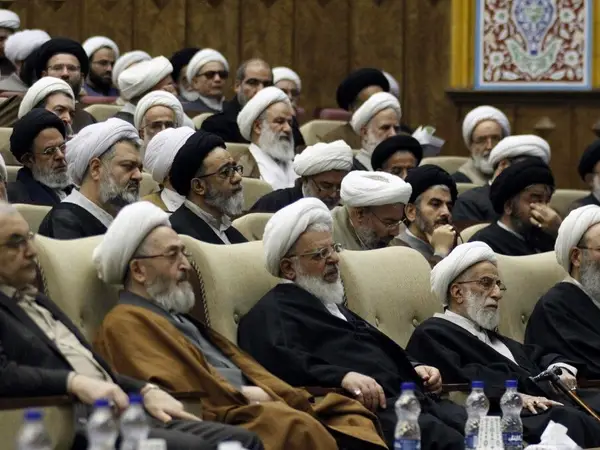An influential Shiite seminary group and senior Ayatollah Hossein Noori Hamedani, have expressed their dissatisfaction over Iran's current political and economic situation.
In a statement issued earlier this week, the Association of Qom Seminary Lecturers and Researchers on the death anniversary of Rouhollah Khomeini, the founder of the Islamic Republic, said that "four decades after the Islamic revolution Iran's political and economic systems are still inconsistent with the ideals and promises of the revolution."
The statement accused Iran's Islamic government of being responsible for widespread poverty, rising inflation, high prices, and financial corruption in the country.
The clerics said it is odd that despite all the promises made to the people, economic and pollical crises have heightened under the current government following the consolidation of hardliners’ control over the state.
Elsewhere in the statement, citing the holy Koran, the Association of Qom Seminary Lecturers and Researchers advised the government to stop oppression and follow a rational approach.
Meanwhile, criticizing the government for what President Ebrahim Raisi and other Iranian officials call "economic surgery," and some other officials label as "a test by God," the statement charged that these are excuses made by a government which has no economic plan. The statement said that allowing naïve officials to do ‘the surgery’ is like giving a sword to a drunken man. Other clerics have asked during the week: "Why the officials think God only needs to test the Iranian people?"
The Raisi government stopped billions of dollars in food import subsidies in early May, which led to an overnight jump in bread and other food prices. Officials insisted that the ‘economic surgery’ was necessary to help the country’s ailing economy.
The statement also harshly criticized the government for its inability to further nuclear talks with the West that could lead to the lifting of sanctions on Iran. It charged that "officials who say the fate of the negotiations should not be tied to the people's livelihood know very well that their financial problems are linked to the nuclear talks."
The seminarians further said that "the current situation has made opportunists and profiteers rich while taking away the bread from the poor people's dinner table." They also charged that "the government's over-reliance on Russia and its support of Moscow dealt a big blow on Iran's economy."
Referring to the government's weakness in dealing with the aftermaths of the collapse of a high-rise building in Abadan, the seminarians blamed the corruption and a lack of accountability for the tragedy that has led to the death of at least 40 people.
The statement charged that "political and economic corruption have spread the ranks of the regime while critics do not feel secure to voice their ideas."
In another development, the Jonhouri Eslami newspaper quoted prominent cleric Hossein Noori Hamedani as saying that the state-run media refuse to broadcast his criticism of rising prices that have imposed hardships on the people.
He said, "the people wonder why top clerics do not say anything to the government in the face of policies that lead to rising prices. The people should know that clerics at the seminary offer their advice but state-run media refuse to broadcast them.
Meanwhile, Aftab News website criticized the government-owned media of adding insult to injury by ignoring the sharp fall of the Iranian currency and publishing and broadcasting strange reports to whitewash the government's shortcomings.
